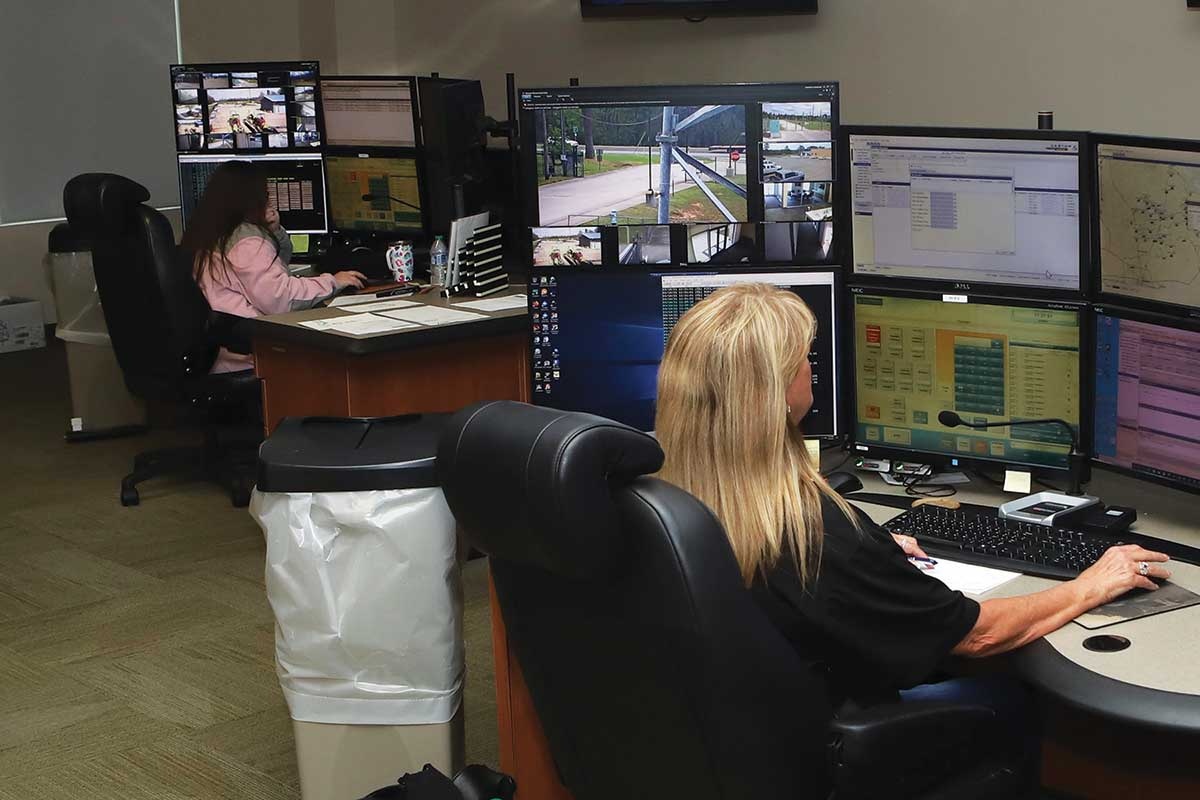Sam Houston Electric Cooperative’s dispatch department and its professionals act simultaneously as grid operators, a control and information relay center and member relations team. During storm recovery, the department becomes the central nervous system of the Cooperative as executives and managers fill the room to assist with and direct restoration efforts.
Luckily for Sam Houston EC consumer-members, most days are not storm restoration days, allowing the Co-op to seamlessly deliver reliable power. The Co-op’s system operators monitor a wall of screens that relay a vast amount of information, during good weather and bad.
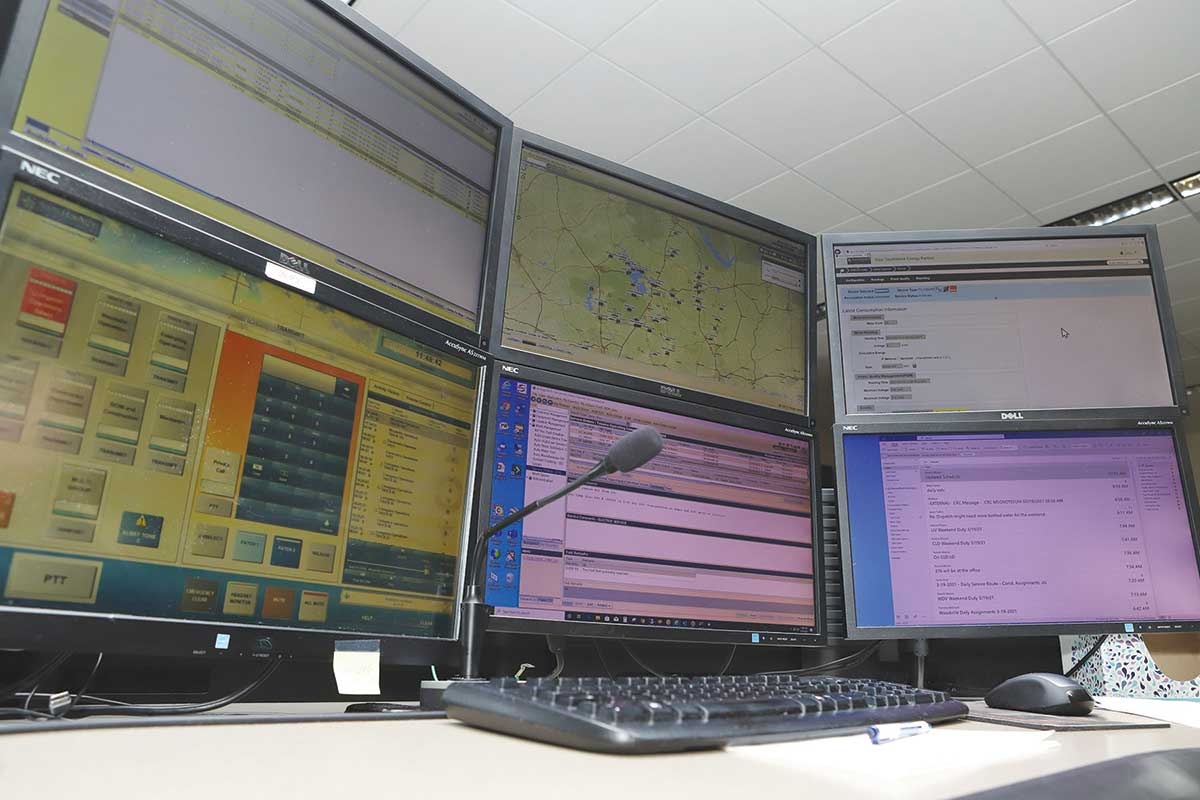
“We all pretty much have the same pattern to monitor the screens,” said A.D. Glover, system operator. “One always has [supervisory control and data acquisition] up, and we are always watching that one.” Other screens, he explained, are dedicated to cameras positioned throughout the system, to the radio communicating with line technicians, and to the outage viewer, alarm system and more.
“For us, the radios are the priority,” Glover said. “The phone might ring, an outage may come through, but the radio is vital. With the push of a button, we can communicate with everyone in the field.”
Those screens, the radio and the system as a whole, are monitored 24 hours a day, 365 days a year, even as Sam Houston EC grows at a rapid pace. In just the past 18 months, the Cooperative’s system grew by nearly 3,000 meters to nearly 80,000 total.
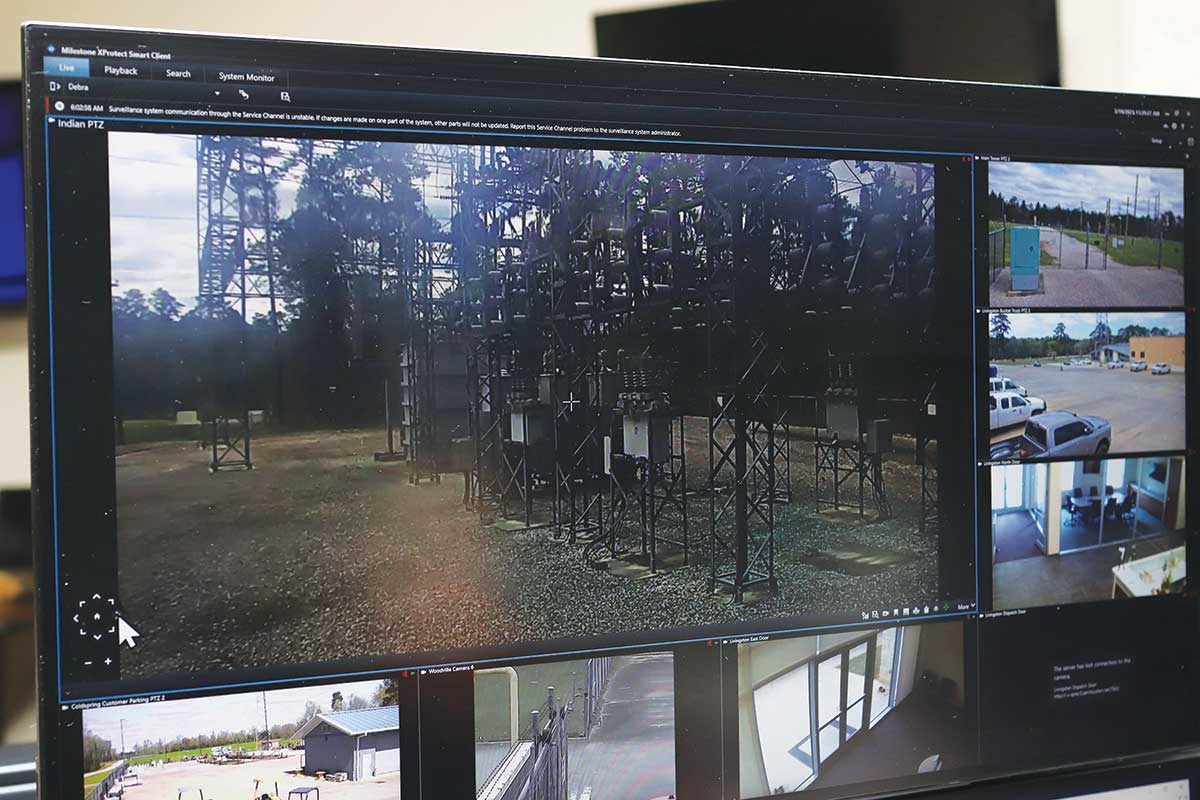
“Mother Nature does not abide by business hours, so neither do we,” said Kenzie Moore, dispatch supervisor. “Storms pop up in the middle of the night, in early mornings and on weekends. Unforeseen events occur that cause outages throughout our system.”
Sam Houston EC system operators work in 12-hour shifts, with a brief turnover time between night and morning shifts before operators start assigning work tickets to line technicians. The operators continue to relay work orders and assign outages as they occur while also monitoring alarms and voltage readings. They grant service access into substations as necessary and monitor the hundreds of cameras.
“None of it is hard; there is just a lot,” said Debra Callaway, a system operator with more than 20 years of experience.
When Callaway started, she only had two computer monitors at her workstation, compared to her current eight.
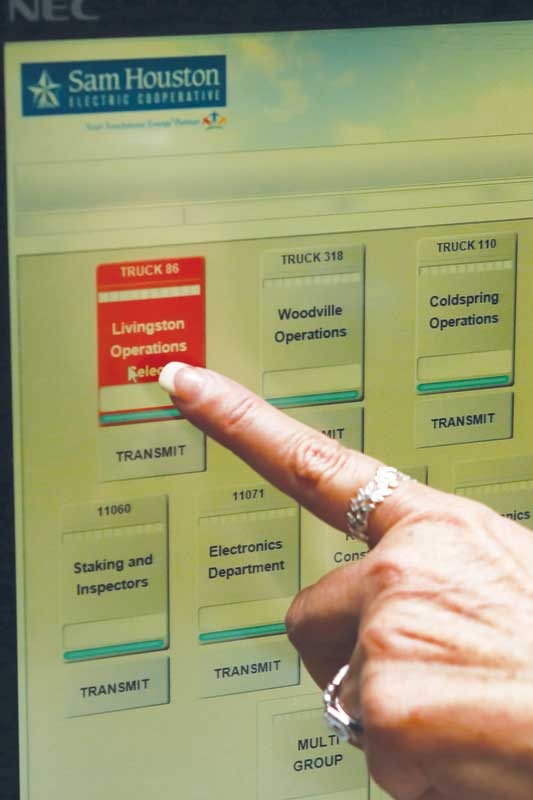
The night shift comes into work several hours after line technicians and other employees have gone home for the evening. Night shifts can be quieter than day shifts because fewer personnel are on the clock, and that allows system operators a chance to help more members.
If not for the night shift, members who lost power during the night would have to wait until the next day before someone could address an issue. That could mean 12–15 hours without power. But with the night team on the clock, system operators are there to help if a member reports an outage in the wee hours, or if the Co-op’s advanced meters detect an outage.
“The first thing we do is contact the meter, and if we get a reading, we will call the member back and have them check their breaker box,” Callaway said. “Calling that member and having them check their breakers, as opposed to calling a two-man crew in the middle of the night, can save hours. They are amazed we call so quick.”
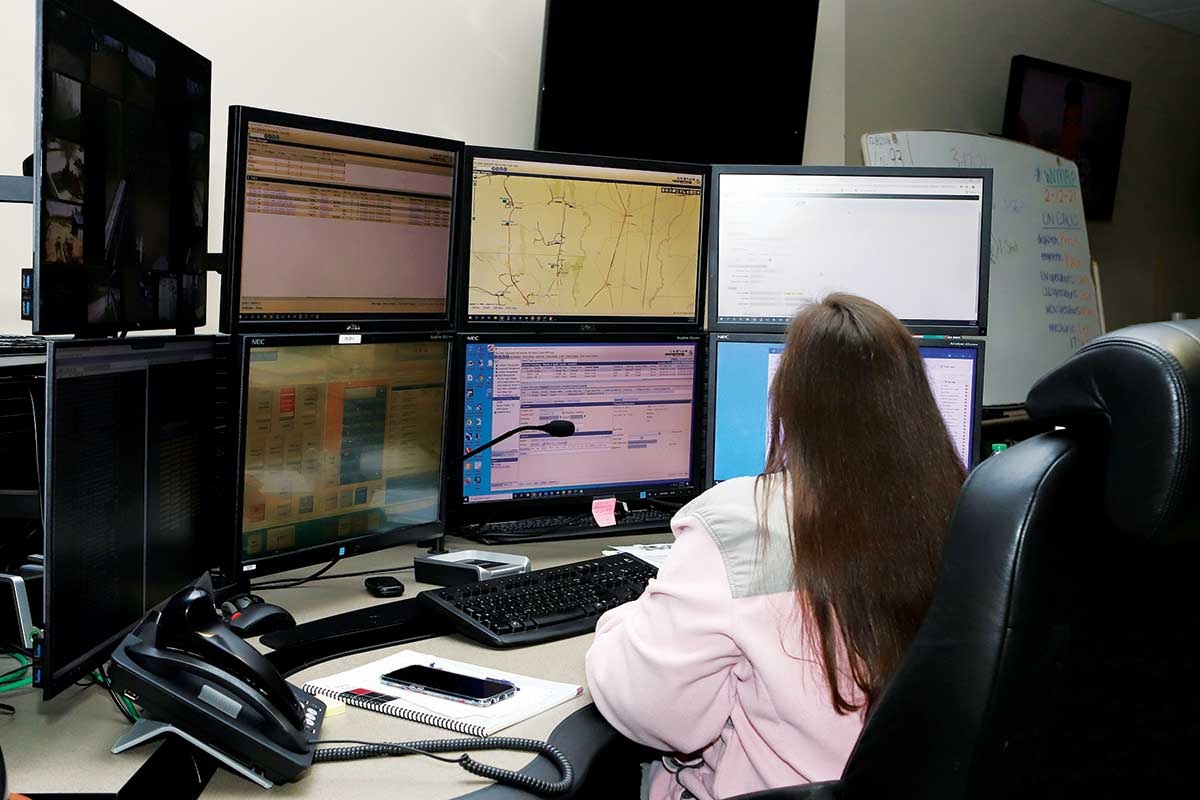
If multiple outages are reported, a system operator will call line crews assigned to the area and notify them of the situation. The system operator will collect more information as the crews respond.
“I love being able to triage [an outage] and telling the line technicians who are on their way there as much as I possibly can about what they are driving into,” Callaway said.
It takes a special person to be able to work long shifts, communicate with members, relay messages, assign outages, remain focused and monitor the Cooperative’s portion of the grid.
Moore believes a good system operator must be reliable and dependable, have a desire to continuously learn and adapt, be able to multitask, have good communication skills, and, perhaps most important, be able to work well with existing personnel.
“I have seen a bunch come and go during my time,” Callaway said. “The system operators that are going to dig their heels in and stay are the ones that absolutely love it. I am not sure what the fit is, but there is definitely a fit.”
Electricity is a necessity. It’s no longer the luxury it was 82 years ago, when Sam Houston EC was founded. Members no longer report outages with letters or postcards nor read their own meters. Now there’s always a system operator on watch.
“I feel like the service we provide is a comfort to our members,” Moore said. “Knowing that day or night, rain or shine or even snow, if their power is out, they know someone is here and working to get it restored as quickly as possible.”
